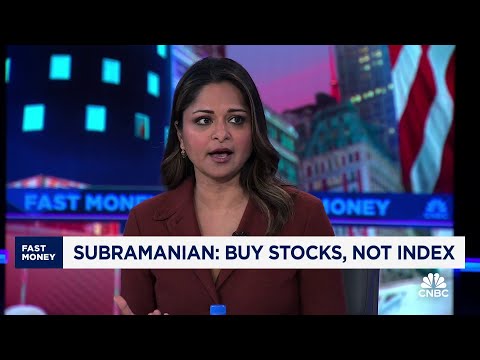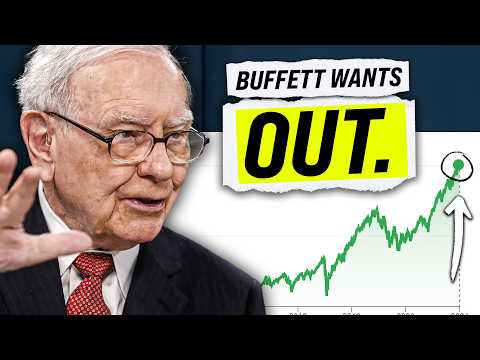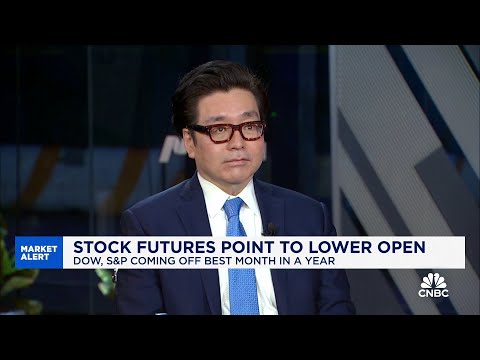In the ever-fluctuating stock in the market, understanding the grip the wealthy have on it is crucial. Wealthy individuals and powerful investors hold staggering shares; the top 10% own 93% of all stocks while the top 1% controls a jaw-dropping 50%. This concentration of wealth shapes not just individual investments, but entire industries and stock market trends. Icons like Warren Buffett and Jeff Bezos illustrate how a few key players can sway entire sectors with their financial moves, from courageous leaps into emerging technologies to calculated partnerships.

The Power Dynamics: Who Controls the Stock in the Market?
The stock in the market is often dictated by the elite few who stand at its helm. Through strategic investments and vast capital reservoirs, they mold the financial landscape. The decisions these high-net-worth individuals make carry weight, reflecting in the stock market indices that signify overall market health, including the Dow Jones Industrial Average, the S&P 500, and Nasdaq Composite. These indices aren’t simply numbers; they echo the decisions influenced by wealthy stakeholders.
When we talk about stock performance and market trends, we’re not just discussing numbers on a screen. We’re witnessing the real-world impact of decisions made in corporate boardrooms. The ripple effect of stock market manipulation and company performance touches the lives of everyday people, affecting their retirement savings, employment opportunities, and much more. To illuminate this, let’s dive deeper into the strategies wielded by these wealthy players.

Top 7 Strategies Used by the Wealthy to Manipulate Stock in the Market
Wealthy investors and institutions employ various strategies to maintain their control over the stock in the market. Here are seven tactics they often use:

Blockchain: The New Frontier in Wealth Control
Blockchain technology is carving a new path that the wealthy increasingly navigate. As a decentralized ledger system, it provides increased transparency and has revolutionized many aspects of finance, enabling wealthy individuals to escape traditional restraints. Companies like Coinbase are creating platforms that disrupt traditional banking, offering new avenues for high-net-worth individuals to invest outside conventional structures.
Investors and corporations alike are beginning to recognize the transformational power of blockchain. With technology revolutionizing everything from transactions to information sharing, it becomes clear that the stock in the market is evolving. The rich are capitalizing on this tech to maintain their power and influence over investments, often leaving everyday investors struggling to keep up.

Bitcoin and the New Age of Wealth Distribution
Bitcoin stands at the crossroads of wealth distribution and transformation. Its meteoric rise has shaken traditional financial institutions and highlighted a shift toward decentralized finance. The 2021 Bitcoin surge captured headlines and investor attention, prompting companies like MicroStrategy to invest heavily in Bitcoin to diversify their portfolios.
But it’s more than just a passing trend; Bitcoin is indicative of how wealth is being reshaped. Institutional investors are increasingly treating Bitcoin not just as a speculative investment but as a legitimate asset class. This acceptance among the affluent creates a new dynamic for the stock in the market, signaling a growing acceptance that could further shift the scales of wealth distribution.

Analyzing Market Trends: The Intersection of Wealth and Stock in the Market
When we analyze market trends, the intertwined relationship between wealth and the stock in the market becomes apparent. Case studies of companies like Tesla reveal how much sway wealthy investors have over their performance. The ownership patterns of these companies often center around a small group of high-net-worth shareholders whose decisions can trigger considerable stock volatility.
Data from 2024 shows us specific patterns, with significant fluctuations often correlating with the buying or selling activities of a few wealthy investors. For instance, Tesla’s stock has seen considerable spikes and dips in response to public disclosures about major stakeholders’ movements, illustrating how a handful of wealthy individuals can dictate market conditions.
The Ethical Implications of Wealth Control in the Stock Market
The dominance of wealthy investors raises ethical questions about the nature of the stock in the market. Are everyday investors left behind as the wealthy continue to shape the market to their advantage? There’s a growing awareness of this imbalance, leading to movements advocating for increased transparency and fairness in trading.
Apps like Robinhood have democratized stock trading, offering everyday investors opportunities previously reserved for the wealthy. This shift challenges traditional norms and raises questions about the future of wealth in investing. As more people venture into stock trading, the call for a level playing field becomes louder, compelling changes in regulation and ethics across the board.
Innovative Wrap-Up: Crafting a Future Beyond Wealth Control
Looking toward the future, a landscape where the stock in the market isn’t solely dominated by the wealthy isn’t just a dream. Potential reforms, innovative technologies, and new financial systems might help create a more equitable playing field. With mounting pressure for regulatory scrutiny and the growth of decentralized finance, tomorrow’s stock market could evolve in ways we hardly imagine.
In 2024, as we navigate through these changes, it’s critical for both speakers and those seeking talent for events to understand the evolving dynamics of wealth in the market. Embracing knowledge and advocating for fairness can help foster a more inclusive environment for investors of all backgrounds. Together, let’s advocate for a financial future that empowers us all, understanding that today’s strategies will shape the market of tomorrow!
Stock in the Market: Fun Facts and Trivia
Fascinating Insights into Stock in the Market
Ever wondered how everyday companies, like Amazon, became titans? Well, stock in the market is where the magic begins! The stock market lets companies raise money and gives investors a chance to own a piece of the action. In fact, about 50% of American households own stocks, directly or indirectly. Surprisingly, this includes the wealthy and those looking to secure their futures, making financial literacy crucial. If you’ve got burning questions about effective strategies to navigate the finance world, having access to a service like the amazon prime video customer service phone number can help you find educational content at your fingertips!
Moreover, tech is changing the stock scene. With innovations like ai art and augmented reality, companies are reshaping their marketing strategies, enhancing customer experiences, and ultimately shifting the demand in stock in the market. Greater interest in tech stocks is a bonus for both small-time investors and high-rollers. Who knew art and investments could mix so well?
What Drives the Wealthy?
When you think about the elite controlling stock in the market, consider how they leverage knowledge. For instance, many successful investors have backgrounds in computer science, allowing them to analyze stock trends and make informed choices. Then there’s the influence of major institutions, like the renowned Johns Hopkins, which set trends that affect stock prices globally. These connections show that knowledge and networks play a vital role in the powers that shape market dynamics.
You might be impressed by how environmental factors, like the recent California flooding Storms, can affect stocks too! Companies in agriculture or insurance adjust their prices based on weather impacts, showcasing just how interconnected everything is. Additionally, factors like the best mortgage rate and Bofa home loan rates can influence investor confidence, affecting stock in the market. It’s a rollercoaster of events where the wealthy often find ways to stay ahead by capitalizing on these shifts.
Investing in Knowledge
In the end, whether it’s brushing up on nuances through engaging content or staying updated on market-changing events—like the work of folks like June Pointer, awareness is your best ally. Knowledge isn’t just power; it’s a game-changer in stock in the market, enabling you to recognize opportunities and inspire smarter investments. When you mix all these insights, the stock market’s rhythm starts making sense, proving that understanding how it all connects could open the door to a wealthier future!

What is the current stock market doing today?
I don’t have real-time stock market data, so I can’t tell you what’s happening with the market today. It’s best to check financial news sites or apps for the latest updates.
What are the top 10 stocks to buy?
There’s no definitive list of the top 10 stocks to buy since it can change based on market conditions, but popular options often include big names in tech, finance, and healthcare. It’s smart to do your own research or consult a financial expert.
Who owns 90% of the stock market?
About 90% of the stock market is owned by a small group of people, with the top 10% holding about 93% of all stocks and the top 1% owning 50%. That really shows how wealth is concentrated.
Should I pull out of the stock market?
Deciding to pull out of the stock market depends on your personal financial situation and long-term goals. It might help to talk to a financial advisor before making any big moves.
Why is US 30 falling?
US 30 can fall due to various factors like interest rate changes, economic data, or company earnings reports. Market fluctuations are normal, so it’s always good to stay informed.
What is the hottest stock on the market right now?
The hottest stock on the market can vary day by day based on trading volume and news, so it’s best to look for stocks that are trending upward in discussions and trading platforms right now.
What stock will boom in 2024?
Predicting which stock will boom in 2024 is always a gamble, but stocks in emerging sectors like clean energy or technology often catch investor attention. Always keep an eye on market trends!
Is Nike a good stock to buy?
Nike has been a strong brand historically, but whether it’s a good stock to buy now depends on your investment goals and the current market situation. Some folks love it, while others may take a wait-and-see approach.
Which is the best share to buy under $100?
Finding the best share to buy under $100 can be subjective, as it depends on individual preferences and market fluctuations. Stocks in established companies or growing sectors often fall in this category.
What company owns every stock?
No single company owns every stock, as the stock market is made up of many companies, each with its own shareholders. It’s a wide marketplace with lots of players.
Who is stock market billionaire?
There are many billionaires in the stock market, like Warren Buffett, who’s well-known for his investment strategies and massive wealth built through savvy stock picks.
Who really controls stock prices?
Stock prices are influenced by many factors, including supply and demand, market trends, company performance, and economic conditions. It’s a mix of market psychology and financial data.
Should a 70 year old get out of the stock market?
It’s not a one-size-fits-all answer for a 70-year-old regarding the stock market. It really depends on their financial goals, risk tolerance, and whether they need liquidity for retirement.
How do I protect my 401k from a stock market crash?
To protect your 401(k) from a stock market crash, consider diversifying your investments, adjusting your asset allocation, and paying attention to market trends. Regularly reviewing your portfolio can help too.
Can I cash out my stocks at any time?
You can cash out your stocks anytime, but keep in mind that selling can have tax implications and you might not get the best price if the market is down.
What is the average return on the stock market last 3 years?
The average return on the stock market over the last three years has varied widely, but many people look at averages generally around 8% to 10% annually over the long term.
What is the YTD stock market return?
Year-to-date (YTD) stock market return can change daily, reflecting how well stocks have performed since the start of the year. Check reliable financial websites for the latest stats.
What is the position of stock market today?
I can’t provide the daily position of the stock market, but checking the major indexes like the Dow Jones or S&P 500 can give you a good idea of how things are looking.
What is the highest the stock market has ever been?
The highest the stock market has ever been keeps changing, especially with key indexes reaching new heights in the past few years. Historical records can be found on financial news sites for specifics.



















